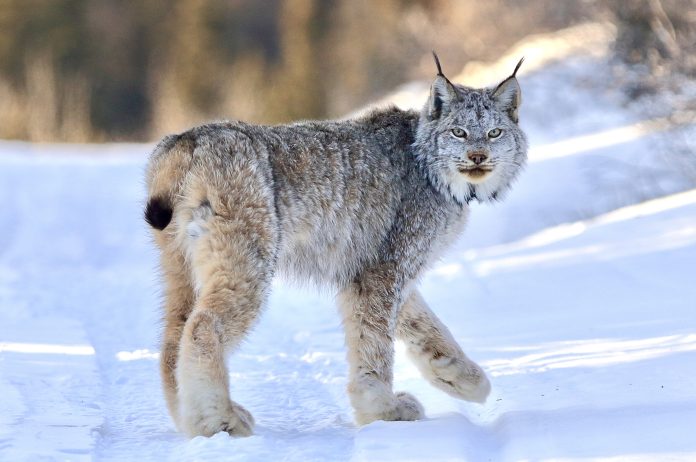
Victory! Wildlife Advocates Convince USFWS To Keep Protections For Threatened Canadian Lynx & Finally Write A Recovery Plan After Nearly Two Decades
You can help all animals and our planet by choosing compassion on your plate and in your glass. #GoVeg
RELATED ARTICLES
Banning Cruelty: New Legislation Aims To Ban Octopus Farming In The U.S.
New bipartisan legislation has just been introduced in the U.S. to ban commercial octopus farming and prohibit imports of farmed octopus from foreign countries.
The...
Outrage In Yellowstone! Grizzly Bear Killed By Wildlife Officials & Left With Head & Paws Cut Off
Photo by: Trisha McFarland / Cowboy State Daily
A photo of a dead grizzly bear with its head and paws cut off has caused an...
Inside Florida’s Illegal Horse Meat Trade: Undercover Footage Shows Racehorse Being Shot & Butchered
A heart-wrenching discovery of illegal horse slaughter has emerged, with video footage exposing the tragic killing of a racehorse named 'Funny Biz,' who was...
Popular stories
News
Sea Shepherd Carries Out Critical Operation Retrieving Ghost Nets To Save Less Than 15 Vaquita Remaining In The Wild; The World’s Most Endangered Marine...
Last week marked the completion of a collaborative effort aimed at removing abandoned fishing gear from the habitat of the critically endangered vaquita porpoise.
The...
News
Breaking! More Than 300 Elephants Have Mysteriously Died In Botswana With No Evidence Of Poaching
The mysterious deaths of hundreds of elephants in Botswanan have concerned people around the world looking for answers.
“A catastrophic die-off of elephants is happening in...
News
The U.S. Gets Tough On Wildlife Traffickers Imposing Strict Visa Restrictions On Eight Smugglers From The Democratic Republic Of Congo
The U.S. Department of State is disrupting wildlife trafficking networks by imposing visa restrictions on eight nationals from the Democratic Republic of the Congo (DRC). These...


